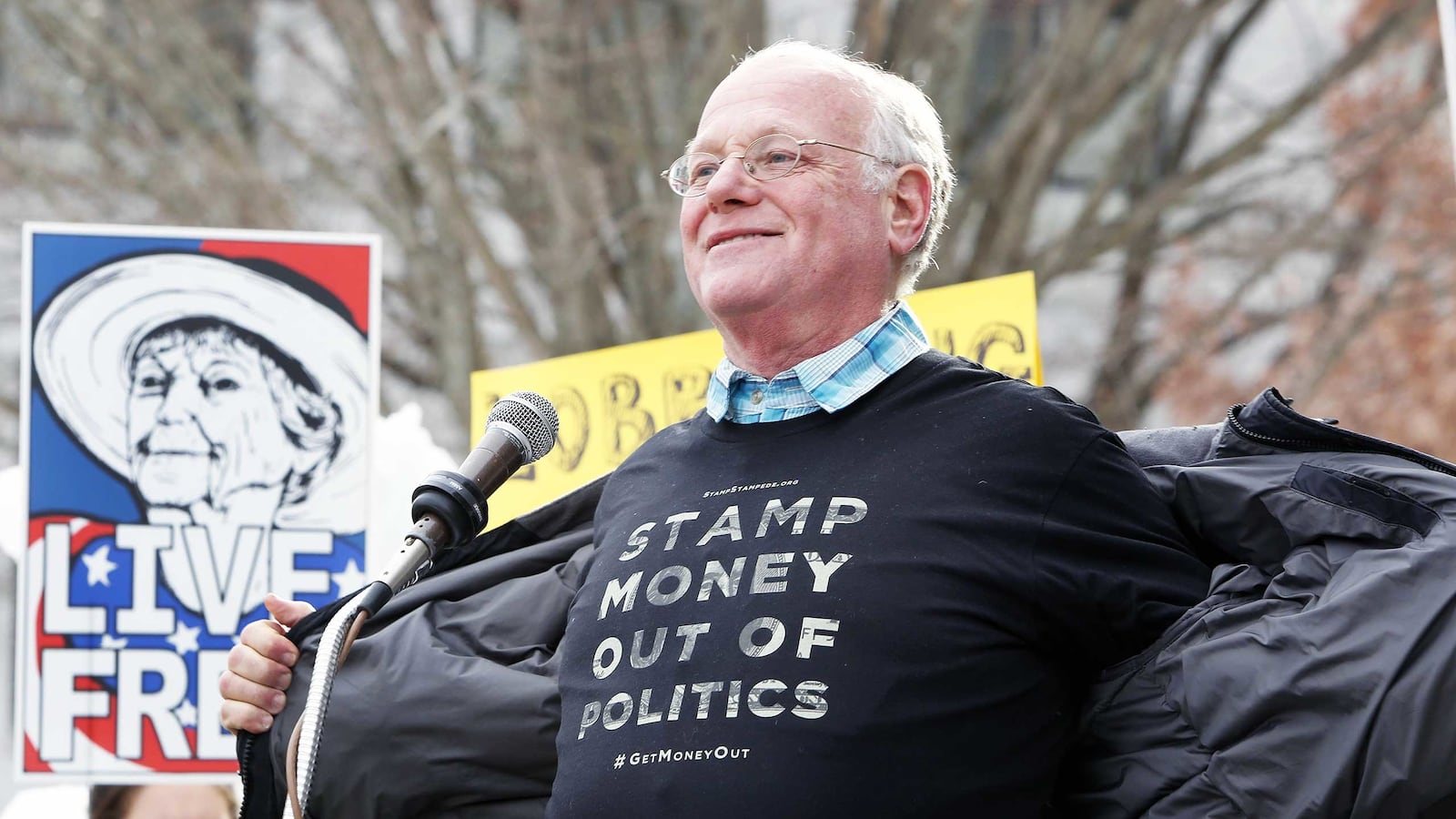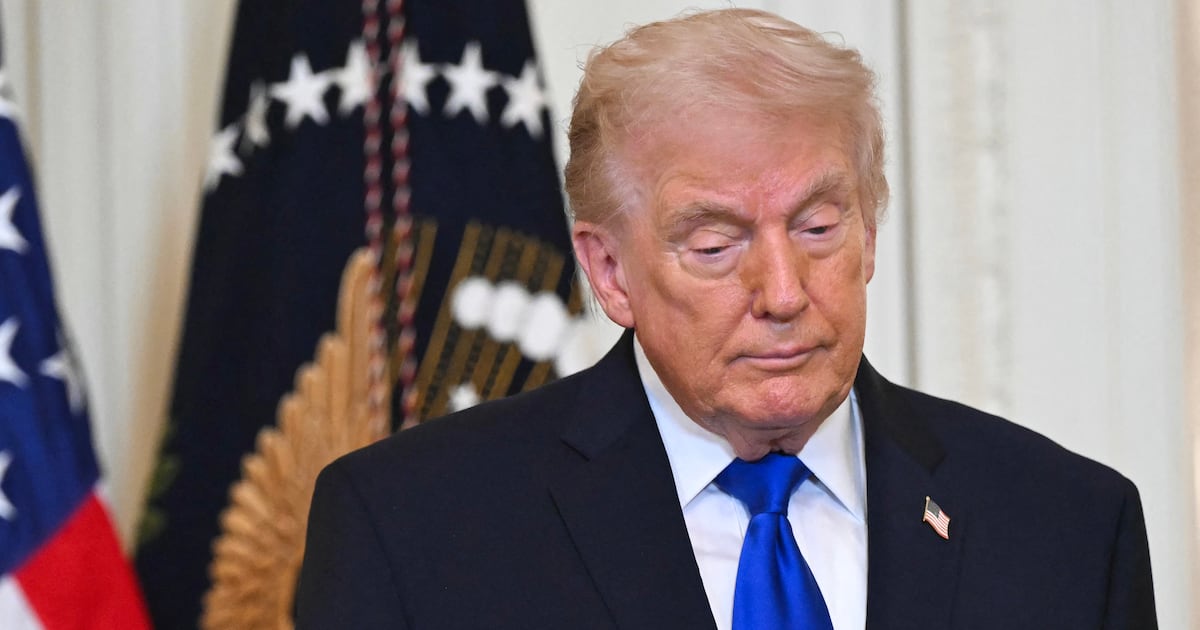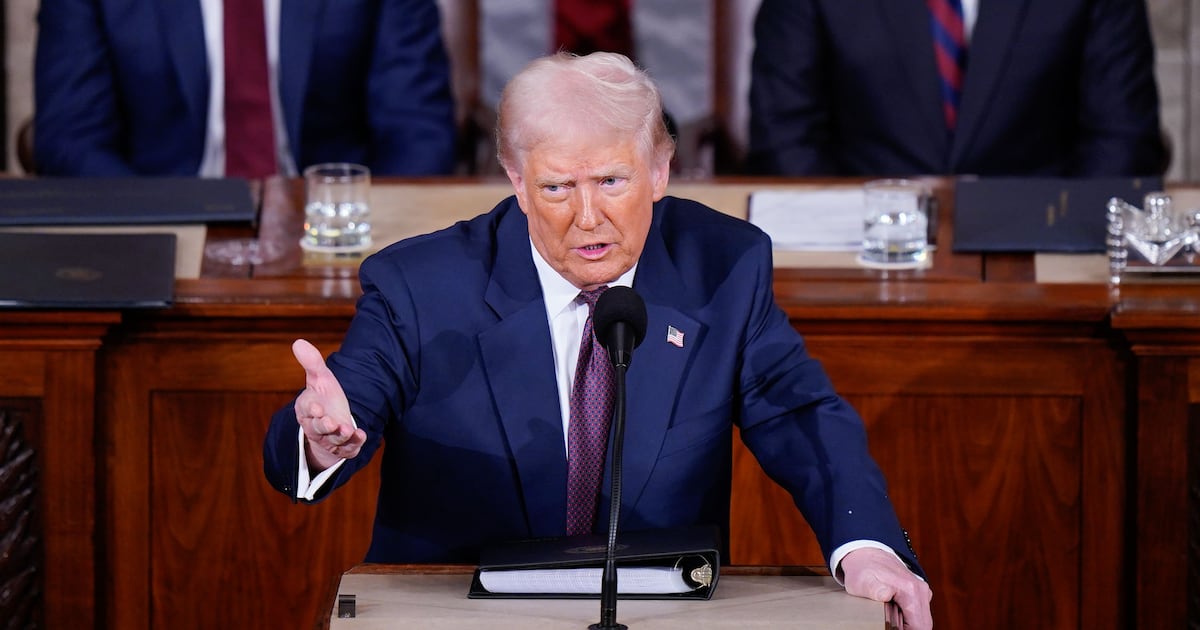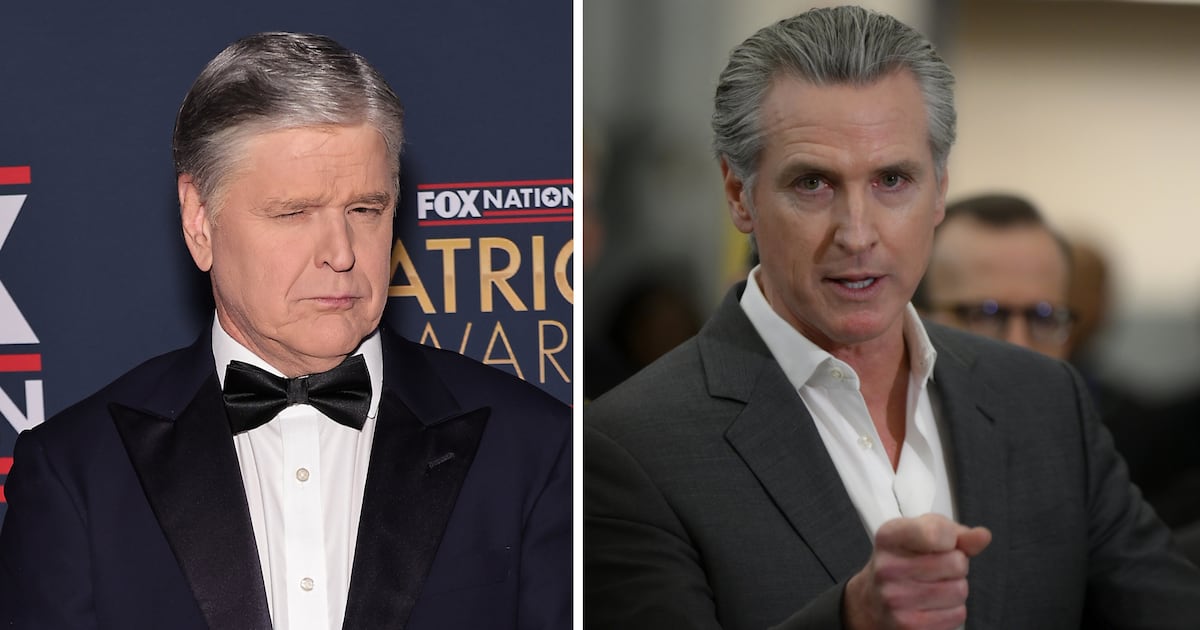When news came that Gary Peters won the Senate seat for Michigan last midterm, retiring Senator Carl Levin gave his successor a congratulatory speech and a $10 bill stamped with red ink: “Not to be used for buying elections.”
This declarative buck was stamped by activists from Stamp Stampede to build awareness about money in politics. Levin imparted the bill to Peters with the coinciding proclamation: “You can’t buy politics.”
This was truer for Peters than probably for any other candidate in the rest of the country. Peters defeated a Republican opponent who had outspent him by about $2 million. But in the Senate races overall last midterm, 82 percent of the biggest spenders won their elections.
In total, almost $4 billion pulsated through last year’s elections thanks to well-heeled groups motivated by an increasingly accurate notion that, actually, you can buy politics. The Koch Brothers have already pledged to spend nearly $1 billion on the 2016 presidential election.

Ever since Supreme Court decisions like Buckley v. Valeo and Citizens United v. FEC, which allowed rich groups to give unlimited amounts of money to influence our elections, we’ve become a government of, by, and for the 1 percent. For the majority of Americans who will never have the $73 million to spare on an election (that’s what billionaire Thomas Steyer racked up on last year’s midterm), the harsh reality of pay-to-play politics is demoralizing. The public trust in our government has never been lower in the history of the United States.
And it gets worse. The post-Citizens United Wild West of campaigns and elections has given rise to “scam” PACs. According to a Politico analysis of the last midterm’s financial reports, 33 PACs raised $43 million, mostly from small donations. And $39.5 million of that went to operating expenses and consulting firms owned by the PACs’ own operatives. Less than 10 percent actually went into what they told donors their money would fund.
Conservative pundit Erick Erickson criticized these PACs for their harmful deceptiveness: “The conservative activists feel like they’ve contributed to a cause greater than themselves, but the money goes to the consultants, and eventually the activists get burned out and stop giving money, including to the legitimate causes.”
Our democracy needs to nurture civic engagement and robust debate, not put a price tag on it. We’ve come to a juncture where Democrats and Republicans require millions of dollars in order to have a voice and the small-dollar donors, who try to play the game, get bamboozled.
Money is the root cause of Washington’s foibles. Politicians get to Washington indebted to the rich minority of our population, and corporate interest saps public interest on bill after bill. Currently, money buys elections, but it shouldn’t. Money should not be buying elections or bribing politicians.
Even if poll after poll shows how the majority of Americans are unhappy about money in politics, Congress can’t seem to come together to represent We the People. There is a reason why over 30,000 citizens are stamping their money like the bill Levin discovered in revolt with the Stampede, a subversive but legal cry of frustration from people who are sick of this vicious cycle.
Millions of people have made reducing money in politics their number one issue due to Congress’s tin ear. The new 114th Congress may have won enough votes to earn a seat in Washington for the next two years, but its members better not confuse their seats with thrones. As public servants and not reigning monarchs, they need to serve the people by working together on an issue Democrats, Republicans and Independents all agree on: getting big money out of politics.
Ben Cohen is the co-founder of Ben & Jerry’s Ice Cream and the founder and head stamper of StampStampede.org, a nonprofit dedicated to reducing the corrupting influence of money in politics.






